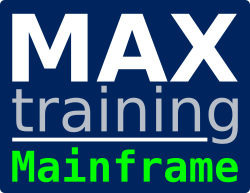MQ Administration Part 2
Code: MQA2Description
The course will help delegates prepare for the IBM MQ System Administration Exam number 000-374. Due to the various platforms supported by IBM MQ the certification, and hence this course, is multi-platform in content.
Audience
This is an advanced course for technical professionals who perform advanced administrator tasks for IBM MQ on z/OS or on distributed platforms, or who provide support to others performing these tasks. It will also be of great value to delegates seeking to pass the IBM exam 000-374 as it looks at a number of past papers from earlier courses. The course is delivered at the latest release level, but can cover earlier releases on request.
Prerequisites
Attendance on MQ Administration z/OS Part 1, or a similar level of understanding is required.
Objectives
The course will answer the perennial MQ questions:
- Where has my message gone?
- Why is my system so slow?
- What are the new Version 7 Features?
- How can I read and interpret the logs?
- Error Handling.
After completing this course delegates will be able to:
- Understand the MQ environment.
- Handle all aspects of Logging.
- Configure remote access and client server environments.
- Implement aspects of security in a distributed queuing environment.
- Improve the performance of MQ, taking into account the requirements of the installation.
- Explain the scope of automated function that is available to support the management of a MQ network.
- Understand and appreciate MQ Clustering.
- Develop, publish and subscribe environments.
Topics
Versions
Overview
Architecture
Common Services.
Log Manger.
Queue Manager Kernel.
OAM.
Application Interface.
Message Channel Interface.
Command Server.
Data Abstraction and Persistence.
Communication Interface.
MQ Processes.
Stopping A Queue Manager Manually.
The MQ Configuration Files.
Editing Configuration Files.
Configuration File Properties.
MQS.INI File.
NotWindows.
Windows.
QM.INI File.
AMQMDAIN.
Understanding MQ File Names.
Name Transformation.
Object Name Transformation.
DSPMQFLS.
Control Commands.
Commands Mainframe.
Configuration.
MQ System Libraries.
ISPF Libraries.
CICS System Libraries.
Sample Code.
Program Properties.
Sub System.
Name Table Entries.
Command Line Prefix.
Queue Manager Definition.
Viewing the Queue Manger Definition.
System Defaults.
CSQ6SYSP.
CSQ6LOGP.
CSQ6ARVP.
CSQBDEFV.
The Page Datasets.
The Buffer Pools.
CSQINP1.
Storage Classes.
Required Queues.
Start the Channel Initiator.
Stopping the Channel Initiator.
Queue Manager.
Queue Manager.
Performance.
Calculating the Size of the Log.
Tuning Parameters.
Manual Queue Deletion.
Displaying a Queue Manager Details dspmq.
Message Sets.
Distributed Processing.
Local Queuing.
Distributed Queuing.
Channel states.
Message Hopping.
Client To Server Queuing.
Using Environment Variable.
Definition Table.
MQCONNX.
Sample Program AMQSCNXC.
Queue Manager Grouping.
Message Do Not Appear When Or Where Expected.
Error Logs.
Location.
Operation.
Creating Persistent/Non Persistent Messages.
Within Syncpoint Control.
Outside Syncpoint Control.
Messages Containing Incorrect Data.
Mainframe Log.
Archiving.
Mainframe Dual Logging.
When the active log is written.
Declaring The Logging Information.
Practical Exercise.
Logs
Types of Logging.
Circular Logging.
Linear Logging.
Logging Summary.
Why Should I look at MQ Logs.
Queue File Introduction.
Typical Log Record.
Where Are The Logs.
Viewing The Logs.
DMPMQLOG.
RCRMQOBJ.
Check Pointing.
RCDMQIMG.
Replay Phase.
Recovery Phase.
Resolution Phase.
Difference Between Error and System Logs.
Error Logs.
Log Creation.
Log Size.
Log Contents.
Log Description.
Log Parameters.
Error Log Size.
Excluded Messages.
Suppressed Messages.
Suppressed Message Interval.
Persistent/Non Persistent Messages.
Creating Persistent/Non Persistent Messages.
Syncpoint Control.
Within Syncpoint Control.
Outside Syncpoint Control.
Messages Containing Incorrect Data.
Mainframe Logging.
Types of Log Files.
Dual Logging.
Active Logs.
When the Active Log Is Written.
Declaring the Logging Information.
CSQ6SYSP.
BSDS.
What the Bootstrap Data Set is For.
Definition.
CSQJU003.
Archive Logging.
CSQ6ARVP.
The Log Datasets.
Log Records.
Unit of Recovery.
Checkpoint Records.
Page Set Control Records.
CF Structure Backup Records.
The Off Load Process.
Messages During Off Load.
Archive Log Data Sets and BSDS Copies.
What Happens During Restart and Recovery.
Rebuilding Queue Indexes.
Log Utilities.
Mainframe Traces.
AP1 Trace.
Channel Initiator Trace.
Generalized Trace.
Performance Statistics.
Accounting Data.
LUW Traces.
Statistics Mainframe.
Setting On.
The Output.
Statistics LUW.
Accounting Messages.
Statistics Messages.
Clusters
Repository.
Full Repository.
Partial Repository.
Maintaining Information.
Cluster Sender And Receiver Channels.
Cluster Definitions.
Repository CSQOREXX.
MQEXPLORER.
Sender and Receiver Channels.
Queues.
Workload balancing.
Binding.
Options.
CLWLUSEQ.
User Exit.
Netprty.
Ranking Channels.
Weighing Queue Managers.
MQ EXPLORER Wizard.
Alias and Remote Queue Definitions.
Creating the Remote Queue Definition.
Creating the Channels.
The Queue Manager Alias.
Connecting To A Queue That Is Outside Of A Cluster.
Creating the Remote Queue Definition.
Creating the Channels.
Overlapping Clusters.
Introduction.
Examples.
Removing A Cluster Queue From A Queue Manager.
Security
Types of Security.
Access Control.
OAM.
Operation.
Control.
MCA Access.
Message Content.
SSL.
Types of Security Breeches.
Overcoming Security Access Control.
Handshake.
Create a Key Repository.
Defining the Key Repository.
Setting up the Channels for SSL.
Distinguished Names.
Error Logs
Finding the Logs.
Log Names.
Log Creation.
Log Size.
Log Contents.
Log Description.
Error Log Size.
FFST.
Persistent/Non Persistent Messages.
Syncpoint Control.
Performance Statistics.
Accounting Data.
Traces.
Publish and Subscribe
Terms.
Topic.
Publishers.
Subscribers.
Publications.
Retained Publications.
Message Selection.
Durable/Non Durable Subscription.
An Orphan Subscription.
Defining Topics.
MQ Explorer.
Command Prompt.
A Publish and Subscribe Environment.
Publish.
API’s within Applications.
Sample Programs.
MQ Explorer.
Subscribe.
API’s within Applications.
Sample Programs.
MQ Explorer.
Further Notes.
AMQSSBX.
RFHUTIL.
Topic Alias.
Subscription/Publication Testing.
Java Message Service
JMS Message.
JMS Fields & Properties.
MQRFH2 Header.
Message Body.
MQ Classes For Java Interface.
Example Application.
Message Broker
Without a Message Broker.
The Solution.
A Message Broker.
IBM Integration Bus.
Integration Bus Toolkit.
Message Parsing.
Message Properties
Format.
Message Format Version 7.
Message Properties.
Message Flowing To A Previous Version.
Summary/Advantages of Message Properties.
Message Properties API.
Commands:
• MQCRTMH.
• MQDLTMH.
• MQSETMP.
• MQINQMP.
Examples.
Viewing Properties MQEXPLORER.
Price (ex. VAT)
Duration
Delivery methods
- Classroom
- On-site (at your location)
- Virtual (instructor online)
